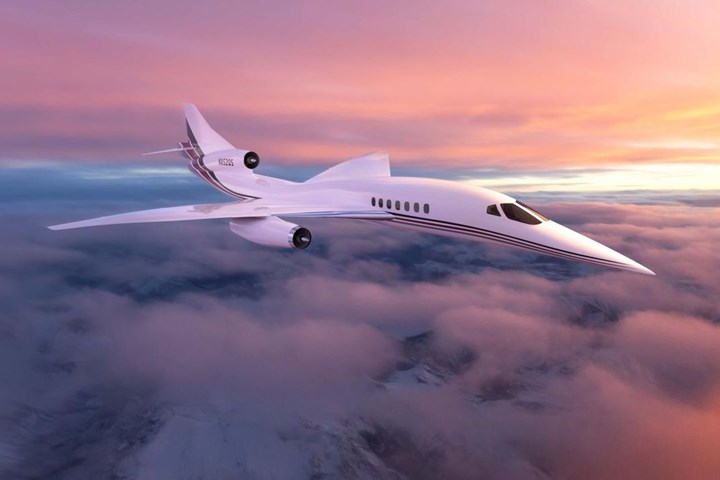Aerion ceases operations of AS2 business jet
According to Aerion, the decision has been attributed to the lack of funding for the supersonic aircraft.
Share
Read Next

Photo Credit: Aerion Corp.
Multiple news sources have reported that on May 21, supersonic aircraft developer Aerion Corp. (Reno, Nev., U.S.) confirmed that it is ceasing operations of its AS2 business jet program, attributing the decision to difficulty in raising the capital needed to complete production, due to several financing deals that have reportedly fallen through. Note that the information discussed below refers specifically to Aviation Week’s original announcement.
The company’s initial aim was to begin production of the first prototype of its $120 million AS2 supersonic business jet in 2023, with its first flight scheduled to follow in 2025. Boeing (Chicago, Ill., U.S.) Spirit AeroSystems (Wichita, Kan., U.S.) were counted as investors; back in July 2020, the company expanded its composite agreement with Spirit to develop a pressurized fuselage.
The company also had plans to invest $300 million to build a final assembly facility in Melbourne, Florida. Airways Magazine noted that companies such as NetJets (Columbus, Ohio, U.S.) and Flexjet (Richmond Heights, Ohio, U.S.) had already placed considerable orders and letters of intent with Aerion, both with committments for a 20-AS2 aircraft order.
“The AS2 supersonic business jet program meets all market, technical, regulatory and sustainability requirements and the market for a new supersonic segment of general aviation has been validated with $11.2 billion in sales backlog for the AS2,” the company said in a statement provided to The Weekly of Business Aviation.
“However, in the current financial environment, it has proven hugely challenging to close on the scheduled and necessary large new capital requirements to finalize the transition of the AS2 into production,” the statement added. “Given these conditions, the Aerion Corp. is now taking the appropriate steps in consideration of this ongoing financial environment.”
In March 2021, Aerion released an image of a planned AS3 follow-on airliner concept designed for entry into service around the end of the decade. It would cruise at higher Mach speeds closer to the hypersonic region, the company said.
The AS2 was designed to fly at supersonic speeds over water and tailored for high subsonic, or transonic flight around Mach 0.96 over land, where in most countries no sonic boom is allowed.
Brian Barents, former executive chairman at Aerion, said May 21 that hearing the news was “obviously disappointing.” The project has made a lot of progress, said Barents, who retired from Aerion in 2018.
Related Content
-
Combining multifunctional thermoplastic composites, additive manufacturing for next-gen airframe structures
The DOMMINIO project combines AFP with 3D printed gyroid cores, embedded SHM sensors and smart materials for induction-driven disassembly of parts at end of life.
-
Next-generation airship design enabled by modern composites
LTA Research’s proof-of-concept Pathfinder 1 modernizes a fully rigid airship design with a largely carbon fiber composite frame. R&D has already begun on higher volume, more automated manufacturing for the future.
-
ASCEND program update: Designing next-gen, high-rate auto and aerospace composites
GKN Aerospace, McLaren Automotive and U.K.-based partners share goals and progress aiming at high-rate, Industry 4.0-enabled, sustainable materials and processes.
















